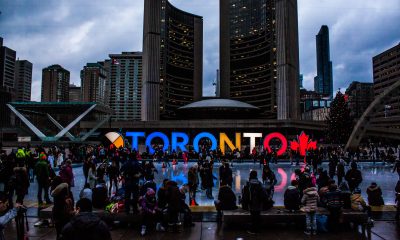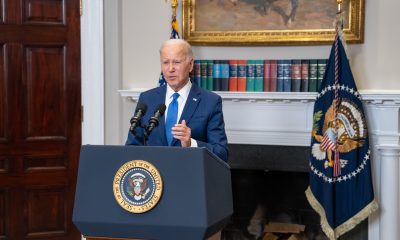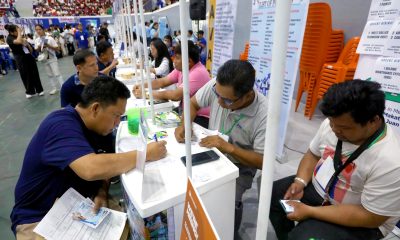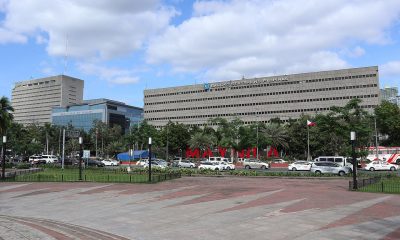Technology
Amazon urged not to sell facial recognition tool to police

It’s not clear how many law enforcement agencies have purchased the tool, called Rekognition, since its launch in late 2016 or since its update last fall, when Amazon added capabilities that allow it to identify people in videos and follow their movements almost instantly. (Photo by Amazon.com Inc., Public Domain)
SEATTLE — Amazon’s decision to market a powerful face recognition tool to police is alarming privacy advocates, who say the tech giant’s reach could vastly accelerate a dystopian future in which camera-equipped officers can identify and track people in real time, whether they’re involved in crimes or not.
It’s not clear how many law enforcement agencies have purchased the tool, called Rekognition, since its launch in late 2016 or since its update last fall, when Amazon added capabilities that allow it to identify people in videos and follow their movements almost instantly.
The Washington County Sheriff’s Office in Oregon has used it to quickly compare unidentified suspects in surveillance images to a database of more than 300,000 booking photos from the county jail — a common use of such technology around the country — while the Orlando Police Department in Florida is testing whether it can be used to single out persons-of-interest in public spaces and alert officers to their presence.
The American Civil Liberties Union and other privacy advocates on Tuesday asked Amazon to stop marketing Rekognition to government agencies, saying they could use the technology to “easily build a system to automate the identification and tracking of anyone.”
That could have potentially dire consequences for minorities who are already arrested at disproportionate rates, immigrants who may be in the country illegally or political protesters, they said.
“People should be free to walk down the street without being watched by the government,” the groups wrote in a letter to Amazon on Tuesday. “Facial recognition in American communities threatens this freedom.”
In an emailed statement, Amazon Web Services stressed that it requires all of its customers to comply with the law and to be responsible in the use of its products.
The statement said some agencies have used the program to find abducted people, and amusement parks have used it to find lost children. British broadcaster Sky News used Rekognition to help viewers identify celebrities at the royal wedding of Prince Harry and Meghan Markle last weekend.
Amazon’s technology isn’t that different from what face recognition companies are already selling to law enforcement agencies. But its vast reach and its interest in recruiting more police departments — at extremely low cost — are troubling, said Clare Garvie, an associate at the Center on Privacy and Technology at Georgetown University Law Center.
“This raises very real questions about the ability to remain anonymous in public spaces,” Garvie said.
While police might be able to videotape public demonstrations, face recognition is not merely an extension of photography but a biometric measurement — more akin to police walking through a demonstration and demanding identification from everyone there, she said.
Some police departments, including Seattle, have policies that bar the use of real-time facial recognition in body camera videos.
Amazon released Rekognition in late 2016, and the sheriff’s office in Washington County, west of Portland, became one of its first law enforcement agency customers.
A year later, deputies were using it about 20 times a day — for example, to identify burglary suspects in store surveillance footage. Last month, the agency adopted policies governing its use, noting that officers in the field can use real-time face recognition to identify suspects who are unwilling or unable to provide their own ID, or if someone’s life is in danger.
“We are not mass-collecting. We are not putting a camera out on a street corner,” said Deputy Jeff Talbot, a spokesman for the sheriff’s office. “We want our local community to be aware of what we’re doing, how we’re using it to solve crimes — what it is and, just as importantly, what it is not.”
It cost the sheriff’s office just $400 to load 305,000 booking photos — which are already public records — into the system and $6 a month in fees to continue the service, according to an email obtained by the ACLU under a public records request.
Last year, the Orlando, Florida, Police Department announced it would begin a pilot program relying on Amazon’s technology to “use existing city resources to provide real-time detection and notification of persons-of-interest, further increasing public safety.”
Orlando has a network of public safety cameras, and in a presentation posted to YouTube this month , Ranju Das, who leads Amazon Rekognition, said the company would receive feeds from the cameras, search them against photos of people being sought by law enforcement and notify police of any hits.
“It’s about recognizing people, it’s about tracking people, and then it’s about doing this in real time, so that the law enforcement officers … can be then alerted in real time to events that are happening,” he said.
The Orlando Police Department said in an email that it “is not using the technology in an investigative capacity or in any public spaces at this time.”
The testing has been limited to eight city-owned cameras and a handful of officers who volunteered to have their images used to see if the technology works, Sgt. Eduardo Bernal wrote in an email Tuesday.
“As this is a pilot and not being actively used by OPD as a surveillance tool, there is no policy or procedure regarding its use as it is not deployed in that manner,” Bernal wrote.
The privacy advocates’ letter to Amazon followed public records requests from ACLU chapters in California, Oregon and Florida. More than two dozen organizations signed it, including the Electronic Frontier Foundation and Human Rights Watch.





















